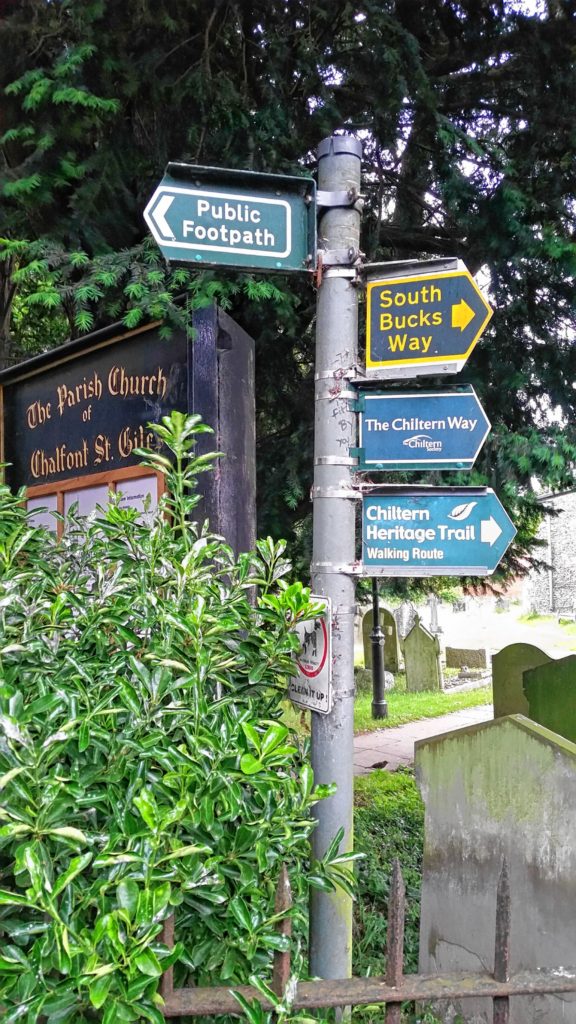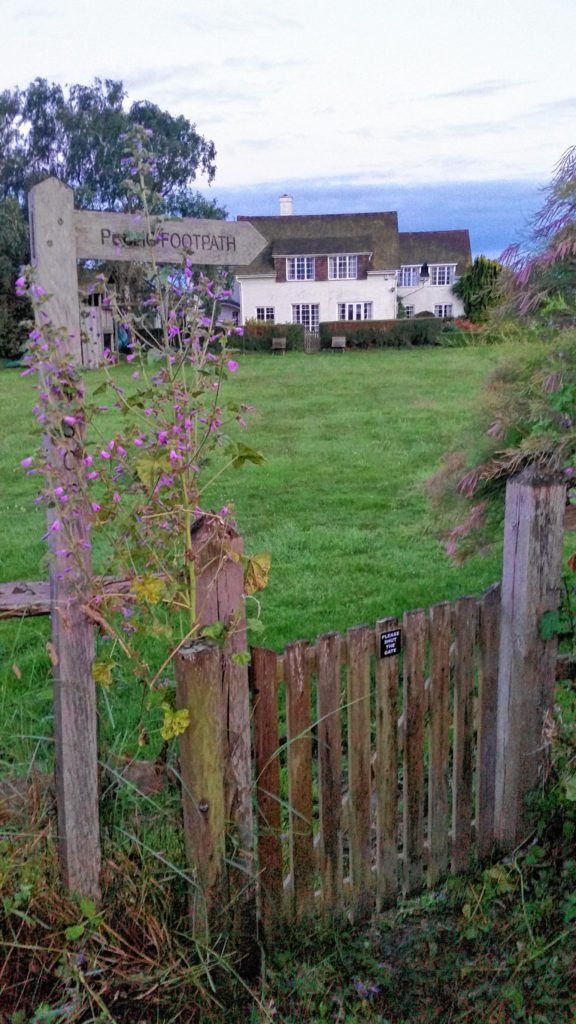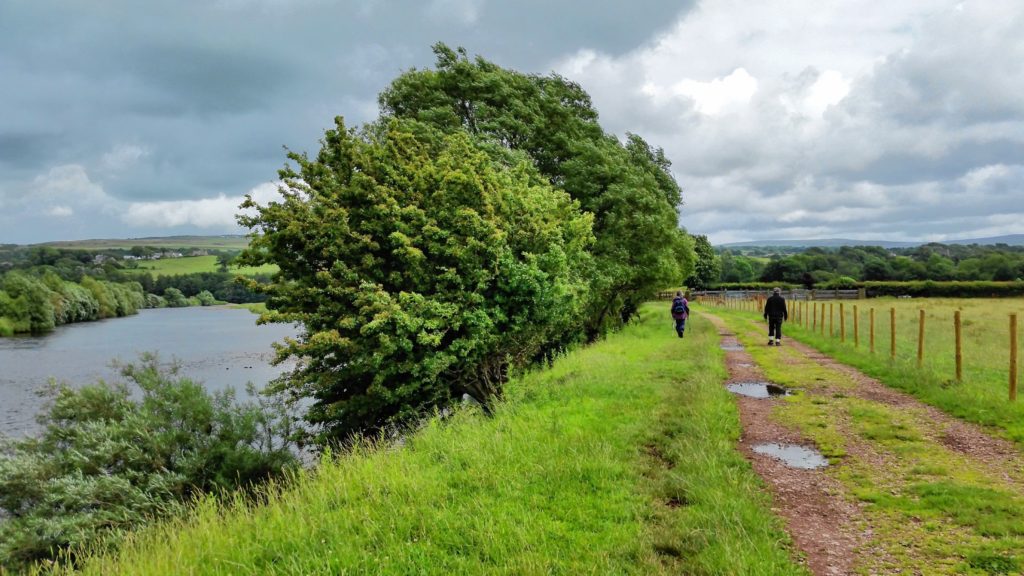Last month, on a Sunday afternoon, I drove down to the Oxbow for an ultimate Frisbee pickup game. Clouds had been gathering all day and it began to rain as I drove, so when I arrived at the athletic fields, no one had turned up to play.
I parked my car and decided instead to go running in the pleasantly warm rain. My circuit took me around the fields past the banks of a marshy inlet, and eventually back down to the Oxbow Marina, which administers the fields and grounds.
Then I noticed a gray vehicle approaching my car. I shortened my run and trotted over, hoping but doubtful that someone had arrived for pickup.
But as I came closer I noticed the logo of the Oxbow Marina on the gray car. A man was leaning out his window inspecting my pipsqueak of a Ford Fiesta (which, as an aside, I purchased for its mix of good fuel economy and low cost).
He eyed me. “You know this is private property,” he said, his tone none too friendly.
“I do,” I returned promptly. “We have these fields rented to play ultimate Frisbee. But no one came today because of the rain, so I went on a run.”
He thought this over, frowning. “Is it a women’s team?”
“Coed,” I said. “Well, pickup. Anyone can play.”
He cracked a slight smile for the first time. “ ‘I can, I will, end of story,’ is that it?” he asked.
I hesitated, surprised, then looked down at my Tshirt and laughed. I’d forgotten it was emblazoned with those words.
“Pretty much,” I said, grinning, no doubt with a pleased glint in my eyes. I’d won that round, and he drove off, leaving me there to finish my workout with situps and some jumping jacks.
The Oxbow Marina is, indeed, private property. Normally as a random citizen I’d have no right to pursue my activity on its grounds, innocuous as my trotting and sweating around the outskirts of their grassy fields and brushy banks might be.
A friend told me he once briefly parked at the marina to enjoy the sunset. A security officer swiftly shooed him from the grounds, saying, “People pay $1,500 for the privilege of parking here.”
In America, the privacy of land is sacrosanct, and no poor sap has the right to enjoy a chunk of natural space he has not paid for.
Contrast this to Great Britain, where I am now visiting family and friends. The recent Brexit referendum is of course all over the news. But I’m finding quieter things, less noisy, but still political, to notice as I explore.
Driving through the English countryside and townships, I’ve discovered it’s hard to go farther than about 200 meters before encountering a characteristic signpost: “Public Footpath” proclaims each wooden arrow, pointing down a dirt track that leads over grasslands or alongside stone walls or through hedges or into dairy pastures.
Great Britain, it turns out, has a long tradition of respect and legal protection for walking. In collaboration with nonprofit walking clubs, the government is now compiling maps of all currently existing footpaths in England. Many have been used for hundreds of years. Paths mapped by 2026 will receive legal protection. Scotland goes one further, stating that any footpath that has existed for 20 years or longer may not be obstructed.
The nation also has “righttoroam” laws extending beyond the footpaths. Public access to “mountain, moor, heath, down and registered common land” was formalized in England and Wales by the Countryside and Rights of Way Act in 2000. Scotland’s law lets people cross and use open countryside and inland water for any responsibly exercised, nonmotorized recreational or educational activity.
The public’s right to natural landscape is thus embedded in national law, culture and imagination here in Britain. And people rise to the opportunity. A lively culture of walking and of rambling clubs survives and thrives here. Just a few days ago I spotted a group of some 10 or so preteen ramblers sitting at a street corner, leaning on their big backpacks awaiting their team leader’s return to continue their trek.
One can crisscross the British landscape on foot, exploring farmlands and forests and graveyards and churches that date from the 1100s and even the bottoms of people’s back gardens. Blackbirds, wrens and chaffinches twitter in the hedges; snails creep past underfoot; wildflowers crowd the path edges. One can cross roads and lanes and ancient estates and stiles keeping cows and sheep in bounds.
To be fair, in western Massachusetts we live in a good area for access to the landscape. Bike paths abound, state and national parks offer trails, and even the Appalachian Trail passes our area in its unhindered journey along the East Coast. And many property owners are generous, like the farmers who allow public access to the fields of the Meadows.
In nearby Vermont, the law limits legal liability for any landowner who allows public recreational access to their property. That law’s a helpful start, removing an incentive for property owners to block public use of open land.
Still, in America a mood and philosophy of complete private ownership of land prevails, as illustrated by my incident at the Oxbow. Few would think to question the marina’s right to evict me from the property if I hadn’t paid for the right to be there — even though it’s one of only a few access points the Oxbow’s waterfront. We have just one Oxbow and one Connecticut River, but it’s widely considered right and fair to block access for the sake of profit and monetary privilege.
I’m not against the idea of private property: I believe people should have the right to own land they can use and fashion to their needs. But to allow walkers to cross open natural land, doing no damage, helps every person in society easily reach the nature that is so often broken up, parceled out and obstructed.
And access to nature provides startling benefits. In Great Britain, I’ve relished the calm and friendly walking culture.
Scientific research, too, has shown marked health improvements from walking and spending time outdoors, which decreases rates of depression, slows mental decline in older adults, and even possibly lowers breast cancer risk, among other benefits.
For me, American naturalist Aldo Leopold said it best in this beautiful lament for lost landscape in his 1949 “A Sand Country Almanac”: “At daybreak I am the sole owner of all the acres I can walk over. It is not only boundaries that disappear, but also the thought of being bounded. Expanses unknown to deed or map are known to every dawn, and solitude, supposed no longer to exist in my county, extends on every hand as fair as the dew can reach …
“I can feel the sun now. The birdchorus has run out of breath. The far clank of cowbells bespeaks a herd ambling to pasture. A tractor roars warning that my neighbor is astir. The world has shrunk to those mean dimensions known to county clerks. We turn toward home, and breakfast.”
Naila Moreira is a writer and poet who often focuses on science, nature and the environment. She teaches science writing at Smith College and is the writer in residence at Forbes Library. She’s on Twitter @nailamoreira.





